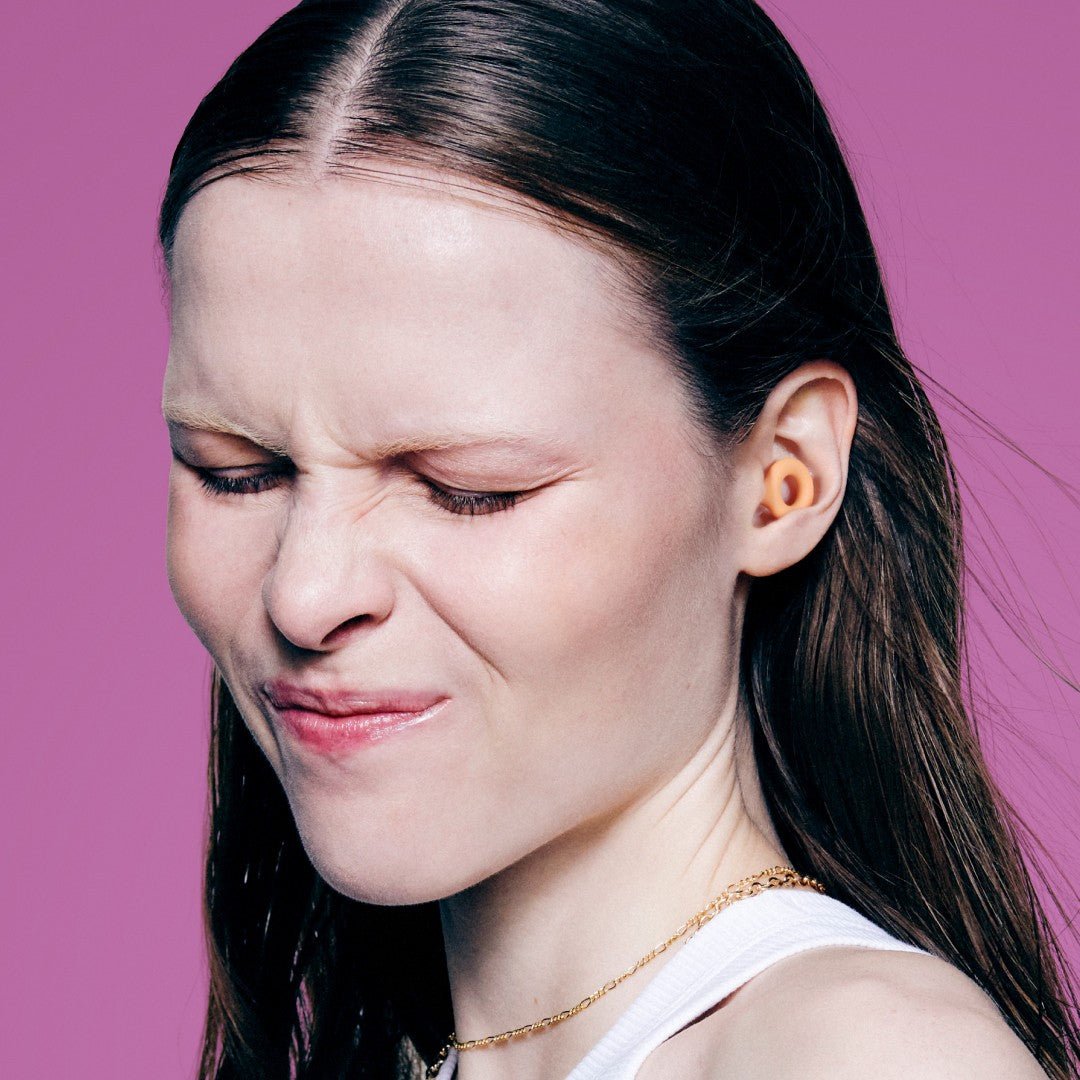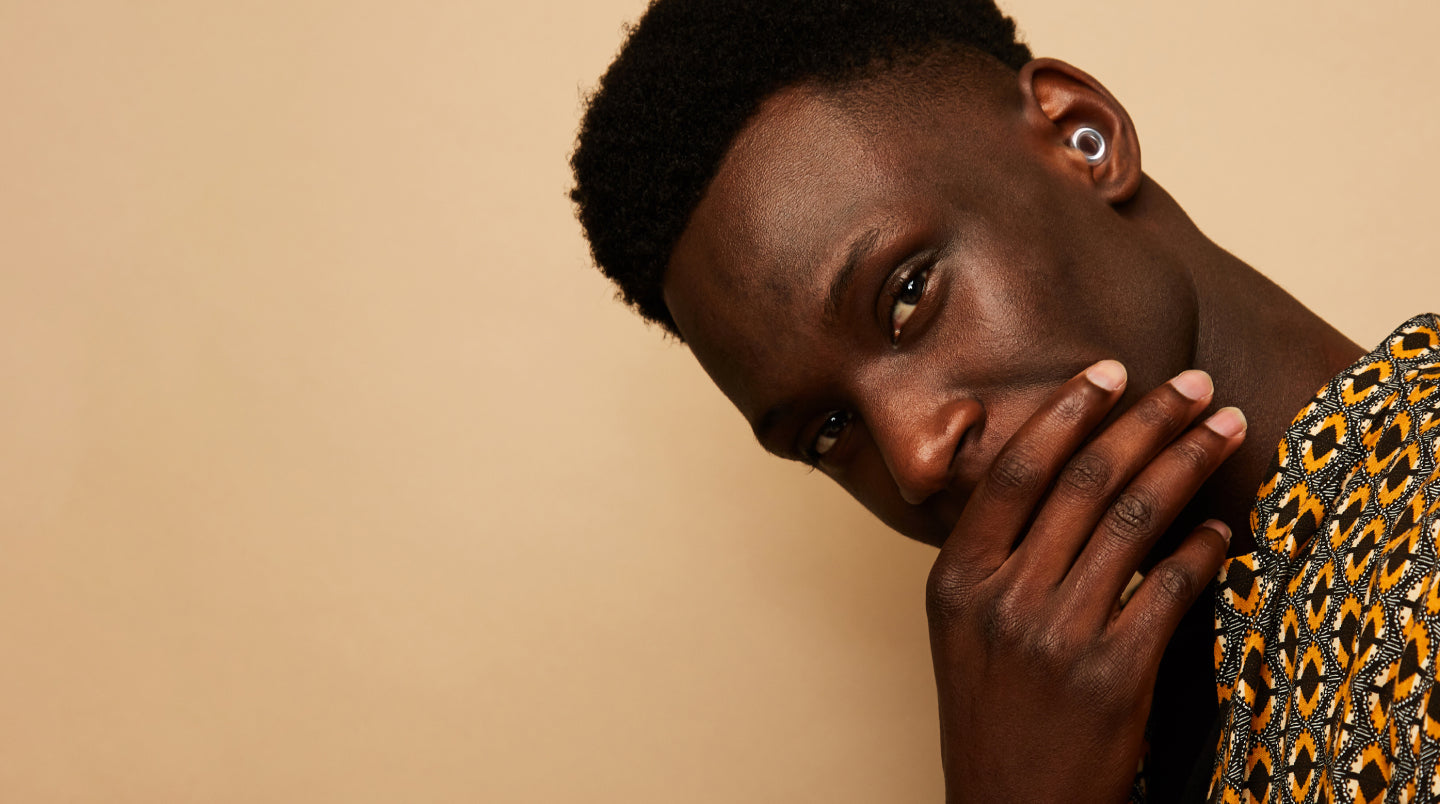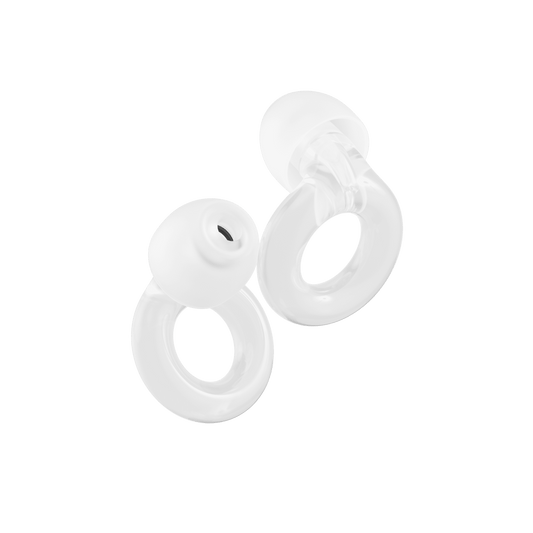We’re surrounded by sounds – and that’s a wonderful thing. But for some people, these sounds can be overwhelming, triggering discomfort or even causing pain. This is known as sound sensitivity, and it affects people in different ways – and there are also different types of sound sensitivity, which all have their own symptoms and impact on the people who experience them. So, whether you’re seeking to better understand your own audio sensitivity, or you want to support a loved one who’s sensitive to sounds, here’s everything you need to know.
What is sound sensitivity? An introduction.
Sound sensitivities can manifest in various ways, depending on the individual. Some people may experience physical pain or discomfort when noises are particularly loud or at a particular frequency, while others might find specific sounds intolerable – something that can be caused by various factors, such as autism, migraines and post-traumatic stress disorder (PTSD).
The impact of sound sensitivities on daily life can be profound. Individuals may alter their routines, avoid certain environments, or wear ear protection to manage their symptoms. Someone who’s sensitive to loud noises, for example, may avoid busy, noisy environments like concerts, busy streets or even social gatherings, which can lead to isolation. Similarly, people who have intense emotional reactions to specific sounds, like chewing or tapping, can also lead to avoidance of situations where they might be exposed to those sounds.
In severe cases, sound sensitivity can lead to social isolation, affecting personal relationships and mental health. Understanding the different types of sound sensitivities is crucial for providing appropriate support and creating environments that accommodate those affected. By raising awareness, we can foster a more inclusive and empathetic society for everyone.
Hyperacusis
Hyperacusis is extreme noise sensitivity. Indeed, the term comes from the Ancient Greek words for ‘excessive’ and ‘hearing’. While many people are sensitive to sound, hyperacusis is a heightened sensitivity to normal or moderately loud sounds. These noises might not bother other people, but for someone with hyperacusis, they can feel unbearably loud and distressing.
Causes of hyperacusis
This heightened auditory response can be triggered by various factors. Although the condition isn’t fully understood, it’s commonly thought that it isn’t a hearing issue but is instead a problem with the way your brain perceives sounds.
Other common causes include damage to the inner ear, head injuries, ear infections, or prolonged exposure to loud noises. Additionally, conditions such as migraines, Lyme disease, and certain neurological disorders can contribute to the development of hyperacusis. Understanding these potential causes is essential for diagnosing and managing the condition effectively.


Symptoms of hyperacusis
Individuals with hyperacusis often experience symptoms such as ear pain, discomfort, or the perception that certain sounds are excessively loud. Everyday noises like a ringing phone, the sound of a vacuum cleaner, or even conversations can become sources of significant distress.
As well as pain and discomfort, people with hyperacusis may experience other distressing symptoms like depression, anxiety, irritability, panic attacks and feelings of annoyance. The fear of encountering triggering noises can interfere with social interactions and daily activities, leading to avoidance of noisy environments and, in some cases, social isolation. The constant vigilance required to manage hyperacusis can also result in increased stress and anxiety.
Management with Loop Earplugs
If you have hyperacusis, it’s not recommended that you try to completely block out noise. Doing that can make your reactions to noise worse in the long run. Instead, it’s suggested that you expose yourself to noise, but protect your ears against particularly loud noises. That means you should wear earplugs like Loop Experience in loud environments like concerts.
They reduce the intensity of sounds, while protecting your ears, providing comfort and relief in noisy environments. Loop Experience filters noise by 17 decibels (SNR), so music and other sounds stay crystal clear, but at a lower volume – reducing the risk of discomfort while protecting your ears from damage.
Misophonia
Misophonia is a condition characterized by intense emotional and physiological reactions to specific sounds, often referred to as trigger sounds. These reactions can include anger, anxiety, or extreme irritation, making it difficult for individuals to tolerate certain noises.
Causes of misophonia
The exact cause of misophonia is not well understood, but it is believed to involve abnormal connections between the auditory and limbic systems in the brain, which are responsible for processing sound and regulating emotions, respectively. That means that it’s not a hearing problem, but a problem with the way your brain perceives sounds.
What we do know is that it’s a fairly common condition. Research by King’s College London has found that 18.4% of the UK population has the condition – that’s one in five people.
Trigger sounds and symptoms
Common triggers for misophonia include everyday sounds such as chewing, breathing, or typing – although triggers are different for everyone. Other triggering sounds could include:
- Sniffing
- Audible sighing
- Lip-smacking
- Clicking pens
- Typing on a keyboard
- Slurping
- Footsteps
- Finger tapping
- Throat clearing
All of these sounds can cause someone with misophonia to feel intense anger or distress. They may also experience irritation, stress, anxiety, impatience, or feel like they’re trapped.
These symptoms can affect people in different ways. For some, misophonia is annoying but doesn’t greatly impact their life. The research by King’s College London found that 18.4% of survey participants experienced misophonia to an extent that it was a significant burden on them. That may mean that they feel such anger, disgust and anxiety, that they avoid social situations for fear of encountering triggering sounds – and that can lead to isolation.
Managing misophonia
As with hyperacusis, wearing earplugs all the time isn’t recommended, as it could make things worse in the long run. But they can be effective in building up your tolerance to triggering sounds.
Earplugs for misophonia reduce noise levels, helping to provide relief from irritating sounds. If you tend to avoid social gatherings, get frustrated with your colleagues eating their lunch loudly, or frequently become anxious on public transport, earplugs can take the edge off, reducing the likelihood of you feeling stressed, disgusted or angry. And if distracting noises make it hard to concentrate on work, studying or other tasks, earplugs can minimize background noise, helping you to find your focus.

Tinnitus
Tinnitus is the perception of ringing, buzzing, or other sounds in the ears without any external sound source. It can be annoying at best and debilitating at worst – like all types of sound sensitivities, everyone experiences it differently.
Tinnitus is caused by a problem with how the ear hears sounds, and how they’re interpreted by the brain. It’s usually a symptom of another condition, such as:
- Noise-induced hearing loss
- Age-related hearing loss
- Ear infections
- High blood pressure
- Diabetes
- Sinus infections
- Ear canal blockage
If your tinnitus is caused by a blockage or infection, the ringing or buzzing will usually stop when the underlying condition is resolved. But if you have permanent tinnitus – usually related to hearing loss – then it can’t be cured.
Impact of tinnitus
Tinnitus can significantly impact an individual's life, affecting sleep, concentration, and overall quality of life.
One of the most common and disruptive effects of tinnitus is difficulty sleeping. The constant ringing or buzzing can make it hard to fall asleep or stay asleep throughout the night. This lack of restful sleep can result in daytime fatigue, irritability, and decreased cognitive function, further compounding the difficulties faced by those with tinnitus.
Tinnitus can also make it challenging to concentrate on tasks, especially those that require sustained attention or quiet environments. This can affect work performance, academic success, and the ability to complete everyday activities. The struggle to focus can also lead to increased frustration and a sense of helplessness.
Additionally, the persistent sounds of tinnitus can make it difficult for individuals to engage in social activities, particularly in noisy environments. This can lead to social withdrawal and isolation, as people may avoid gatherings or public places where the noise exacerbates their symptoms. The resulting isolation can further impact mental health and emotional wellbeing.
Managing tinnitus
As with other types of sound sensitivities, it’s not recommended that tinnitus sufferers wear earplugs constantly. That’s because if you’re in a quiet environment with no background noise, you may become more sensitive to sound, which can make your tinnitus worse.
But it is important to protect your ears from hearing loss and damage – which is where earplugs for tinnitus come in. Loop Experience earplugs offer 17dB (SNR) of noise reduction, so music stays clear, but at a safer volume. That means if you’re at a music concert, sporting event or in another loud environment, the noise will be reduced to a safer level, helping to reduce the risk of developing ringing in your ears.

Phonophobia
Phonophobia is characterized by an intense fear or anxiety in response to loud noises. It can be a frustrating and debilitating condition, which can lead to anxiety, stress and isolation, if individuals are worried about encountering loud noises.
The main symptoms of phonophobia include severe anxiety, panic attacks, or avoidance behaviors triggered by loud noises. Some people with phonophobia may also experience physical symptoms such as sweating, trembling, rapid heartbeat, and shortness of breath when confronted with loud sounds.
The fear of encountering loud noises can lead to avoidance behavior, where people with phonophobia steer clear of situations or environments where they might be exposed to such triggers. This can significantly impact social interactions and daily functioning, as activities like attending concerts, going to busy restaurants, or even participating in family gatherings may become overwhelming and distressing.
Causes of phonophobia
Some of the most common causes of the condition include:
- Exposure to sudden loud noises like explosions
- Anxiety disorders
- Sensory processing issues, which is common in individuals on the autism spectrum.
- Migraines
- Post-traumatic stress disorder (PTSD)
- Genetic factors, including a family history of anxiety disorders or phobias.
- Hearing loss or ear conditions like hyperacusis or ear infections can cause discomfort
Managing phonophobia
As with other audio sensitivities, it’s not recommended that you wear earplugs 24/7. Completely blocking out all loud noises can make your reactions to them even worse when you do encounter them. But earplugs for phonophobia can be a useful tool for taking the edge off loud noises, helping you to face your fears.
Loop Engage 2 earplugs are a good choice if you have phonophobia. They filter sound waves rather than blocking them out, offering 16 decibels (SNR) of noise reduction. You can still hear sounds, just at a lower volume – taking the edge off to give you more confidence.
Key takeaways:
There are several different types of sound sensitivities, each with unique characteristics and challenges. Hyperacusis involves heightened sensitivity to normal sounds, misophonia triggers intense emotional reactions to specific noises, tinnitus is marked by persistent ringing or buzzing in the ears, and phonophobia is characterized by a fear of loud sounds. Each condition can significantly impact daily life, affecting sleep, concentration, and social interactions.
For all of these conditions, it’s not recommended that you try to block out all sounds. That can mean that when you do encounter triggering noises, then can have an even bigger impact on you. But wearing earplugs can help to manage all of these conditions, helping you to better cope with your symptoms and improve your quality of life.
If you’re experiencing significant distress due to sound sensitivities, it’s important to explore further resources and seek professional guidance. Getting a better understanding of these conditions and learning how to manage them can lead to a more comfortable and fulfilling life – and remember, you’re not alone!







